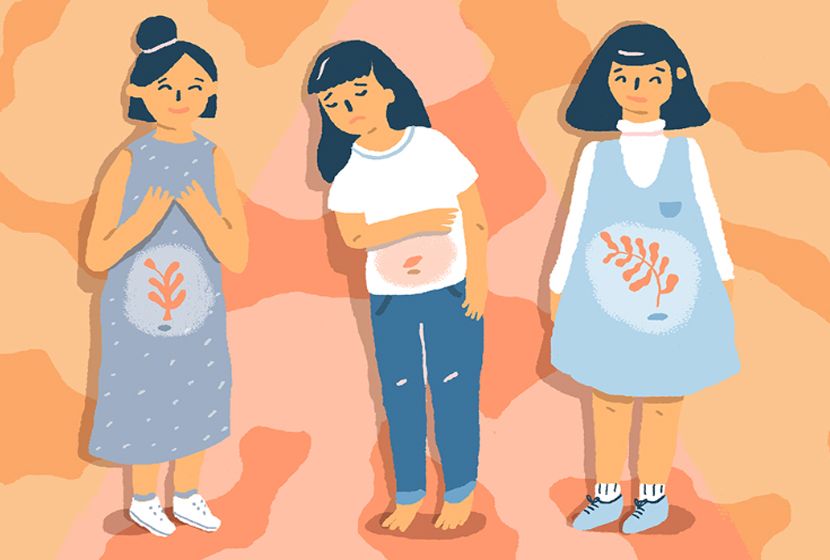In this health essay, researchers and scholars state that infertility can be attributed to a psychological cause in women. Specifically, it is crucial for women to be in a stable mental state with the intention for them to be fertile. Hence, women with infertility feel as anxious or depressed as those diagnosed with cancer, high blood pressure, and other severe chronic diseases. In this case, it means that infertility affects the mental state of women because, to them, it is a health problem that affects their quality of life. Thus, this health essay provides highlights on how infertility affects mental health in women.
Introduction
Infertility may be one of the most challenging experiences a woman can have in her lifetime. In particular, the reason is that it affects a person’s sexual self-esteem, overall performance, and desire. On the other side, such conditions portray that infertility has a psychological impact on women’s lives. Unfortunately, they consider their diagnosis as failure and frustration. Therefore, this health essay is one of the types of papers that can be written about such themes as infertility negatively affecting mental health in women because it makes them more depressed and lowers their self-esteem and the quality of their lives.
Infertility
Infertile women feel more depressed in comparison to other females that they face. In particular, the most common mental health concerns reported by fertility patients are symptoms of anxiety and depression (Ezzell, 2016). Basically, this report implies that infertility results in anxiety and depression in women, and it affects their mental health. In turn, their belief that one cannot conceive makes most women patients stressed because they fear what might happen to their partners when they know that they are infertile. Thus, women with infertility suffer because of it.
Pressure
The pressure to abstain from sex due to fertility treatments can isolate partners and end their relationship. It makes women who are considered infertile to be depressed because they are not sure of their future with their partners (Ezzell, 2016). In this case, it is advisable for women with infertility to seek assistance from mental health professionals. Basically, the goal of this support is to reduce negative symptoms associated with anxiety, stress, and depression. In simple words, women with infertility should communicate with mental health professionals to overcome the depression, stress, and anxiety that result from infertility. Therefore, women with infertility face huge pressure toward them because they do not know how to solve it and how to live with it.
Self-Esteem
Infertility lowers the self-esteem of women. Basically, it is because women who are infertile feel ashamed when they interact with other females who are considered fertile while they have children. For example, females with infertility report more negative emotions, including lower levels of self-esteem and higher levels of depression, stress, anxiety, stigma, and shame (Leanza et al., 2015). In this case, the data represents the real situation in the case of women with infertility. Hence, it shows that infertility makes women ashamed and anxious, and this aspect lowers their self-esteem.
Relationships
Infertility affects women more than men in a relationship. Similarly, this aspect means that a partner’s support is a vital element of coping with the condition. In particular, it holds that both partners must cooperate to overcome the psychological challenges resulting from the condition (V. Leanza et al., 2015). On the other side, infertile women have lower self-esteem when compared to those who are fertile. Therefore, the supportive intervention that aims at improving a sense of partnership among infertile couples helps in dealing with mental health problems associated with infertility.

Quality of Life
Infertility impacts the quality of life in women negatively. For example, it is because being infertile and undergoing fertility treatments has been concluded to affect a patient’s quality of life, which may be seen regarding impairment in psychological well-being, marital relationships, and sexual relationships (Huppelschoten et al., 2013). In this way, infertility lowers the quality of the lives of women.
Treatment
Health t
Conclusion
In conclusion, this health essay expands knowledge of infertility. Specifically, the condition of infertility affects women psychologically in comparison to men. In particular, they feel ashamed when they find out that they cannot have children in the future. Basically, women with this condition should seek treatment from mental healthcare professionals to prevent the condition from affecting their mental health. Notable examples of how infertility negatively impacts women include lowering the quality of life, depression, anxiety, and self-esteem. Therefore, in order to prevent the situation from affecting women psychologically, it is advisable for the partners with the condition to visit healthcare and receive the intended treatment. Moreover, this health essay recommends that support from both partners helps in overcoming depression and anxiety that result from infertility.
References
Ezzell, W. (2016). The impact of infertility on women’s mental health. North Carolina Medical
Journal, 77(6), 427-428. https://doi.org/10.18043/ncm.77.6.427
Huppelschoten, A., van Dongen, A., Verhaak, C., Smeenk, J., Kremer, J., & Nelen, W. (2013). Differences in quality of life and emotional status between infertile women and their partners. Human Reproduction, 28(8), 2168-2176. https://doi.org/10.1093/humrep/det239
Leanza, V., Palumbo, M., Leanza, A., & Leanza, G. (2015). Feelings of shame, depression


